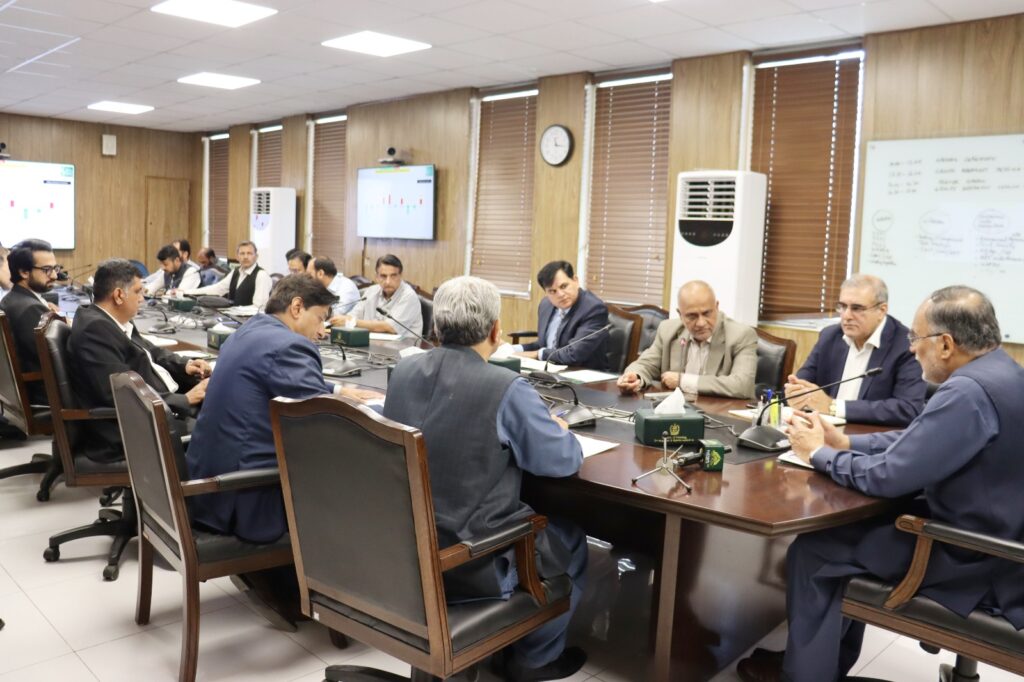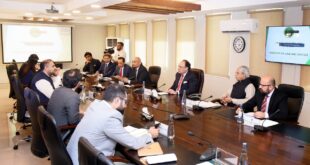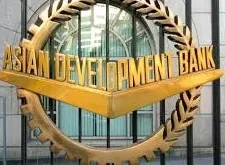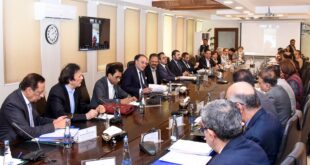
Federal Minister for Planning, Development, and Special Initiatives, Ahsan Iqbal, chaired a high-level stakeholder consultative meeting today, bringing together leading figures from Pakistan’s top brands, private sector, industry, and branding experts.
The purpose of the meeting was to develop a unified strategy for building a strong national brand for Pakistan, and to promote national brands—particularly SMEs—as part of a broader vision to support exports and drive economic transformation.
Prominent attendees included CEOs and senior representatives from Unilever, PepsiCo, Khaadi, Rasta, Discover Pakistan, K&N’s, LABELS, Ideas, Telenor, Jazz, Gul Ahmed, English Biscuits, Sana Safinaz, PTCL/Ufone, Mind Map Communications, Hub, D’Hamidi, Prestige, CEO Club, as well as brand specialists such as Zohair Khalique and Arslan Akbar.
In his opening remarks, Minister Ahsan Iqbal highlighted the importance of both corporate and national branding in unlocking Pakistan’s economic potential, particularly in enhancing exports. He noted that the government has recently launched “Uraan Pakistan – National Economic Transformation Plan,” an ambitious roadmap aimed at positioning Pakistan as a trillion-dollar economy by 2035. A key component of this plan is the development of a strong “Made in Pakistan” brand to boost exports and enhance the country’s visibility in international markets.
He emphasized that the success of this vision relies heavily on collaboration between the public and private sectors. “Our national identity is reflected in the products we create and how we present them to the world. By promoting our goods and services, we are directly elevating Pakistan’s national brand,” he said. “We must take ownership of our image and build a distinct, positive identity that resonates globally.”
Minister Iqbal stressed the need to harness Pakistan’s cultural richness, entrepreneurial spirit, and innovation through structured and strategic branding efforts. He made it clear that national branding is not the sole responsibility of the government—it must be a shared commitment involving industry, media, and civil society. “To present Pakistan as a forward-looking and progressive nation, we need to invest in our brand with intention, discipline, and consistency,” he said.
Addressing a concerning issue, the Minister also pointed to the frequent negative portrayal of Pakistan by its own citizens. “Just as a respectable family member avoids actions that may tarnish the family’s reputation, we too must avoid demeaning our own country. Unfortunately, we often see people speaking ill of the nation instead of promoting its strengths,” he added.
During the meeting, the Minister announced that the government is working towards establishing a National Center for Brand Development (NCBD)—a flagship initiative aimed at strengthening Pakistan’s brand presence on the global stage. The center will focus on revitalizing the “Made in Pakistan” label, reshaping global perceptions of Pakistani products, and supporting SMEs in building globally competitive brands.
He also called on participating CEOs and branding experts to contribute ideas for a unified brand tag for Pakistan—one that can serve as the country’s identity in global markets. He emphasized that this unified tag is critical for positioning Pakistan in a distinctive and recognizable way on the world stage.
Participants expressed unanimous support for the long-term continuity of strategic government initiatives such as Uraan Pakistan. They emphasized that consistent economic policies and sustained branding efforts are crucial for long-term economic growth and global competitiveness. Attendees also shared insights on the challenges, opportunities, and needs related to building both the national brand and exportable product brands.
In his closing remarks, Minister Ahsan Iqbal reiterated the government’s commitment to working closely with all stakeholders to develop a strong, confident, and globally respected national identity. He thanked the participants for their valuable input and reaffirmed that such collaboration is key to driving Pakistan’s journey toward comprehensive economic transformation.
 BeNewz
BeNewz




